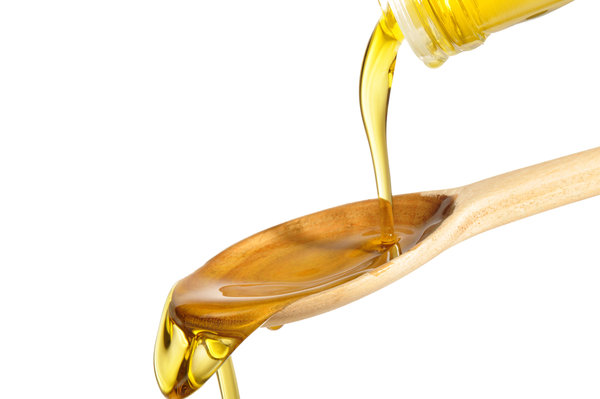unsaturated fatty acids

What are unsaturated fatty acids?
Fatty acids are components of fats that are found in various foods. They can be divided into saturated and unsaturated fatty acids. Saturated fatty acids have a solid structure and are usually solid at room temperature, such as butter or lard. Unsaturated fatty acids have a flexible structure and are usually liquid at room temperature, such as vegetable oils or fish oil.
Unsaturated fatty acids can be further divided into monounsaturated and polyunsaturated fatty acids. Monounsaturated fatty acids have one double bond between two carbon atoms, while polyunsaturated fatty acids have several double bonds. Polyunsaturated fatty acids can in turn be divided into omega-3 and omega-6 fatty acids, depending on where the first double bond is located.
Why are unsaturated fatty acids important for dogs?
Unsaturated fatty acids have many positive effects on the health of dogs. For example, they are important for the formation of cell membranes, hormones and neurotransmitters. They also support the immune system, skin and coat health, cardiovascular function and brain development.
Omega-3 and omega-6 fatty acids, which dogs cannot produce themselves and must therefore obtain from their food, are particularly important. These are also known as essential fatty acids. Omega-3 fatty acids have an anti-inflammatory effect and protect against allergies, arthritis, cancer and other diseases. Omega-6 fatty acids have an anti-inflammatory effect and stimulate growth, reproduction and blood clotting.
How much unsaturated fatty acids does your dog need?
The optimal amount of unsaturated fatty acids for your dog depends on various factors, such as his age, breed, activity level and state of health. In general, however, your dog needs a balanced ratio of omega-3 to omega-6 fatty acids to stay healthy. Most experts recommend a ratio of 1:5 to 1:10.
Unfortunately, many commercial dog foods contain too much omega-6 fatty acids and too little omega-3 fatty acids, which can lead to an imbalance. This can lead to chronic inflammation, skin problems, allergies and other ailments. To avoid this, you should make sure that your dog gets enough high-quality unsaturated fatty acids from natural sources.
Which foods contain unsaturated fatty acids for dogs?
There are many foods that are rich in unsaturated fatty acids for dogs. The best sources of omega-3 fatty acids include fatty fish such as salmon, mackerel or sardines, as well as fish oil or algae oil. The best sources of omega-6 fatty acids include vegetable oils such as sunflower oil, corn oil or safflower oil, as well as nuts or seeds.
You can give your dog these foods as a supplement to his normal food or choose a high-quality food that already contains enough unsaturated fatty acids. However, be careful not to feed too much fat, as this can lead to obesity, diarrhea or pancreatitis. The recommended amount of fat for dogs is around 10 to 15 percent of total calories.
Unsaturated fatty acids are an important ingredient for your dog's health. They have many positive effects on cell function, the immune system, the skin, the heart and the brain. You should make sure that your dog gets a balanced ratio of omega-3 to omega-6 fatty acids to prevent inflammation and disease. You can achieve this by feeding him high-quality unsaturated fatty acids from natural sources or choosing a good food that already contains them.
Properties 7
Are you looking for other ingredients with a specific property?
Just click on them to find more.
If you notice any signs of hypersensitivity or poisoning in your dog, you should see your vet immediately. We are not a substitute for a vet, but we try to be as accurate as possible. Every dog reacts differently and we recommend you get a second opinion or consult your vet if in doubt.
Stay healthy and take good care of your four-legged friend!😊
Similar to unsaturated fatty acids
Fish is a collective term for all animals that live in water and have gills. There are many different types of fish, which differ in size, shape, color and habitat. Fish are vertebrates and usually...
Omega-3 is a group of polyunsaturated fatty acids that the body cannot produce itself and must therefore obtain from food. There are three main types of omega-3: ALA (alpha-linolenic acid), EPA...
Benefits of omega-6 for dogs Omega-6 has many positive effects on the health of dogs. Some of them are: Omega-6 helps reduce inflammation that can be caused by allergies, arthritis or other...
Vegetable oils can aid digestion in dogs by facilitating food absorption and supporting the intestinal flora. They can also nourish and make dogs' coats and skin shiny. Vegetable oils also provide...



